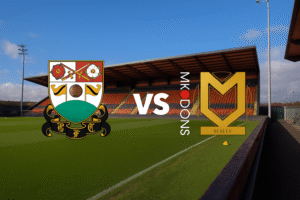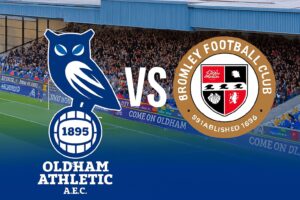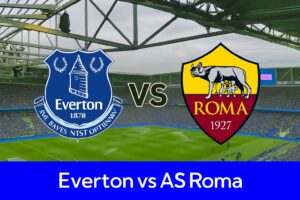
The three-match London escapade marked a significant chapter in the ongoing 92 Football League grounds quest, weaving a tale of unpredictability, camaraderie, and vibrant football culture. As we embarked on this ambitious triple-header, the journey unfolded with its highs and lows, encapsulating the essence of football fandom.
The decision to seize the opportunity presented by the FA Cup’s third-round draw was a strategic one. It offered a chance to check off multiple London clubs from the list, presenting a logistical puzzle that required collaboration with a work colleague, Pat, and a newfound friend from the challenge, Dan. The prospect of witnessing three matches within a 24-hour timeframe necessitated a sacrifice—a day cut short from a family holiday. While unconventional, the urgency to complete these matches resonated with the understanding of fellow football enthusiasts.
To facilitate the expedition, I leveraged my railway discount, securing a remarkably cost-effective train journey for Liam and me. Departing from Aberdeen, the seven-hour ride to London Kings Cross unfolded seamlessly, providing an opportunity to appreciate the cleanliness and frequency of cleaners on LNER trains. However, the journey was not without moments of reflection, as we observed the devastating floods in areas like Newark, Nottinghamshire, amplifying the impact of weather events on communities.
Arriving in London only minutes behind schedule, we navigated the city with a sense of purpose. The chosen hotel, Travelodge Central Bank, presented an unexpected challenge with its elusive entrance. Yet, the peculiarities of the entrance and the absence of signage became part of the adventure. The room, not the anticipated family setup but a double bed for a night, added a touch of humor, particularly with Liam’s potential for snoring—a minor inconvenience in the grander narrative.
With time on our side, we ventured to a local Sainsbury’s for supplies, embracing the spontaneous nature of our expedition. The evening walk to Craven Cottage, Fulham’s home ground, involved navigating along the River Thames and through dimly lit paths. The ticket acquisition process, accompanied by a queue at the smallest club shop encountered on this journey, set the stage for the match. Inside, the illustrations of the planned renovations at Craven Cottage hinted at a promising future for the historic stadium.
The game unfolded with Fulham facing Rotherham, and our front-row seats provided a unique perspective, especially for Liam, who was captivated by the proximity to the players during warm-ups. Fulham secured a 1-0 victory, and the journey back, though longer due to post-match tube rush, showcased the reality of matchday chaos.
Day two commenced with an early wake-up call, a meticulous drop-off of luggage at Bounce near Marylebone Station, and a tube journey to Millwall via Canada Water. The walk to The Den, Millwall’s ground, offered glimpses of heightened security, a testament to the reputation of the fanbase. Despite initial concerns, the atmosphere inside was relatively subdued. Leicester fans added banter to the mix, and the closely contested match ended with a 3-2 victory for Leicester.
The final leg of the London triple-header unfolded at Stamford Bridge, Chelsea’s iconic home ground, where they faced Chesterfield in the FA Cup. The short walk to Fulham Broadway provided an opportunity to savor the surroundings. Meeting Dan and his father added a personal touch to the footballing experience, as we listened to their captivating stories. Chelsea showcased their dominance with a resounding 4-0 win, although our hasty exit, prompted by tube disruptions, meant missing the final moments.
The journey back, involving a brisk walk to Earls Court due to station closures, proved fortuitous, enabling us to catch an earlier train. The London adventure, despite its challenges and weariness, underscored the collaborative spirit among football fans. Pat and Dan’s assistance was invaluable, emphasizing the collective effort required to navigate the intricacies of football fandom.
As we reflect on this ambitious triple-header, it becomes evident that the 92 Football League grounds challenge is not merely a solo endeavor. It thrives on shared experiences, mutual support, and the unique stories woven into each matchday. The camaraderie formed during these journeys enriches the tapestry of football culture, transcending the boundaries of individual clubs.
The London expedition, with its twists and turns, has added a vibrant chapter to the evolving narrative of our 92 Football League grounds quest. The memories of bustling tube stations, unique encounters with fellow fans, and the collective passion that permeates football stadiums will endure. As we anticipate the next leg of the challenge, the echoes of London’s footballing marathon resonate, reminding us that the true essence of this quest lies in the shared love for the beautiful game.
10 interesting facts about the FA Cup:
- Oldest Football Competition: The FA Cup, officially known as The Football Association Challenge Cup, is the oldest football competition in the world. It was first held during the 1871-1872 season.
- Trophy Design: The current design of the FA Cup trophy dates back to 1911. It is made of silver and weighs approximately 6.3 kg.
- Arsenal’s Record: Arsenal holds the record for the most FA Cup victories. As of my last knowledge update in January 2022, they have won the tournament 14 times.
- Preliminary Rounds: The FA Cup is known for its inclusivity. It involves teams from various levels of the English football pyramid, starting from the preliminary rounds.
- Giant Killers: The FA Cup is famous for “giant-killing” acts where lower-league teams defeat higher-ranked opponents. This tradition adds an element of unpredictability and excitement to the competition.
- Wembley Stadium: The FA Cup Final has been held at Wembley Stadium since the stadium’s reopening in 2007. The iconic venue adds grandeur to the final match.
- Royal Patronage: The FA Cup has enjoyed royal patronage. The trophy was stolen from an exhibition in Birmingham in 1895 and was later found by a dog named “Pickles” in a garden. The cup was famously presented to Queen Elizabeth II in 1953.
- Qualification for Europe: Winning the FA Cup traditionally earns a team a spot in the UEFA Europa League, providing an additional incentive for clubs.
- Extra Preliminary Round: The FA Cup starts with an “Extra Preliminary Round,” a stage that involves some of the smallest clubs in the English football pyramid.
- Abolished Replays: In the 2020-2021 season, to ease fixture congestion caused by the COVID-19 pandemic, the FA Cup temporarily abolished replays for all rounds except the semi-final and final. This was a unique alteration in the competition’s format
Please click on the below folders to access the photos from each Stadium we visited:-

Barnet Vs MK Dons
My son Liam, Grandad Steve and I completed the famous 92 Football League Grounds challenge for the second time with a trip to The Hive, Barnet FC’s state‑of‑the‑art home since 2013 after 106 years at Underhill for Matchday 97. Grandad Steve kindly agreed to drive, giving my car a much‑needed

Oldham Athletic Vs Bromley
Matchday 96 saw us heading north to Boundary Park, home of Oldham Athletic. This was the first of two newly promoted clubs we’d be visiting this season following their return to the Football League from the National League. For me, this felt like more than just another ground to tick

Everton Vs AS Roma
Matchday 95 was 106 days since we completed the previous 92 Football League Ground challenge. However during the 2025/2026 we now need to complete 3 clubs. 2 moving up from the National League (Barnet and Oldham) along with Everton FC who moved from their historic Goodison Park to a brand
